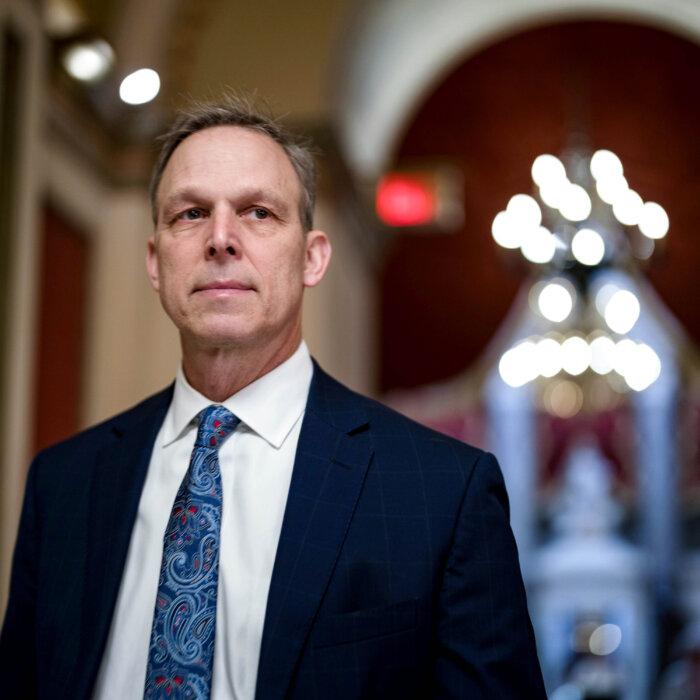Shen Yun Performing Arts, a renowned classical Chinese dance company based in New York, is asking a court to dismiss a civil lawsuit brought by two former performers.
The statute of limitations has passed, and the plaintiffs have failed to allege any unlawful activity, lawyers for the company stated in a July 7 court filing, detailing several other deficiencies in the suit. If the suit were to succeed, it would outlaw common religious practices protected under the Constitution, the filing suggests.
“They are trying to turn everyday religious activity into a federal crime, and it’s just not,” said Justin Butterfield, an attorney for Shen Yun with the Texas-based law firm Butterfield & Patterson.
The civil lawsuit was filed in the federal court for the Southern District of New York in April by two individuals from New Zealand who formerly performed with Shen Yun. The plaintiffs alleged that performing with the company amounted to “forced labor” because they believed that if they left they would “go to hell.”
The Epoch Times previously spoke to dozens of current and former Shen Yun performers who squarely rejected such an interpretation of their company culture or faith.
“I know, actually, many artists who did leave, and they have since started businesses or they’re doing some other careers, and I keep in touch with them, and they’re doing well.”
Ying Chen, vice president of the company, called the suit “a misguided attempt to deprecate the pursuit of excellence and discard the freedom our country affords to religious communities to live according to their faith.”
Even if the allegations were true, they wouldn’t be grounds for litigation, Butterfield said.
“It’s perfectly permissible” for a faith to admonish its believers about “spiritual consequences” of straying from its precepts, he said. “That is something that happens every day, hundreds of thousands of times a day in the United States, and it’s protected by the Constitution.”
Fearing “some sort of spiritual harm” can’t be considered the kind of serious threat of harm contemplated by the Trafficking Victims Protection Reauthorization Act, he noted.
“The law is designed to prevent human trafficking, and it’s not designed to stop religious activity,” Butterfield said.
The suit also complains about the code of conduct required by Shen Yun and its affiliated schools, Fei Tian College and Fei Tian Academy of the Arts, that includes limits on students’ access to the internet and smartphones.
The defense filing said those allegations are a “twisted” re-framing of normal policies expected at a religious boarding school.
“The Constitution protects the right of a religious school to educate students according to its faith.”
The suit argues that Falun Gong isn’t a religion, chiefly because it hasn’t usually described itself as one.
But that is “irrelevant,” according to the defense filing.
“Whether a belief system is a religion under U.S. law is a question of function, not characterization,” the filing reads, noting that previous legal cases involving Falun Gong have already established it as such.
“Presenting those ideas of truth and compassion and forbearance is how they share their religious convictions,” Butterfield said.
The plaintiffs acknowledge that they applied to attend the schools voluntarily and repeatedly—because they failed their initial auditions—for the purpose of eventually joining Shen Yun and furthering the faith they were brought up in, the filing says.
“The most that the Complaint reveals is that Plaintiffs were students who strove to be admitted to, and then to succeed in, an elite dance academy ... with their parents’ consent, hoping to advance to a very high standard of performance to further the practice of Falun Gong,” it said.
Medical Treatment
The former dancers alleged that they suffered untreated injuries.Shen Yun said in its press release that “both emergency and non-emergency medical treatment for any injuries, sickness, or mental health needs is always available to any dancers performing with Shen Yun.”
Butterfield said the allegations are unmoored from the suit’s legal claims. “None of them would violate federal law,” he said.
The Epoch Times previously interviewed at least half a dozen current and former Shen Yun dancers who suffered injuries of varying severity and had them treated. None said their peers or teachers ostracized them for it.
“In my experience and in light of the current research that looks at injuries in dancers/athletes, I actually believe Shen Yun performers are doing better at both reporting and treating injuries than the industry at large,” said Dr. Damon Noto, a specialist in rehabilitation and pain management for dancers and athletes who routinely treats the company’s artists.
It’s also a matter of common sense, Butterfield suggested.
“Shen Yun needs their dancers to be in good health, or else they won’t have a dance performance. And Shen Yun has been very good about making sure that there’s both regular and emergency medical treatment available where they go,” he said.
The filing questions why the former dancers took a decade after they stopped performing with Shen Yun to bring their claims. Despite allegedly having a bad experience at the company, both of them volunteered to promote the company’s shows and participated in other Falun Gong-related activities for years after leaving the company, it says.
The filing to request a dismissal also states that the statute of limitations for the plaintiffs’ legal claims has passed.
“They are suing over experiences common to religious boarding schools and elite dance academies around the country. The Court should dismiss their claims because they are time-barred and because they do not make out any violations of the Trafficking Victims Protection Reauthorization Act (‘TVPRA’),” the filing reads.
“Ultimately, what they allege amounts to nothing more than rejection of their religious upbringing and their past dedication to spreading the message of Falun Gong.”







